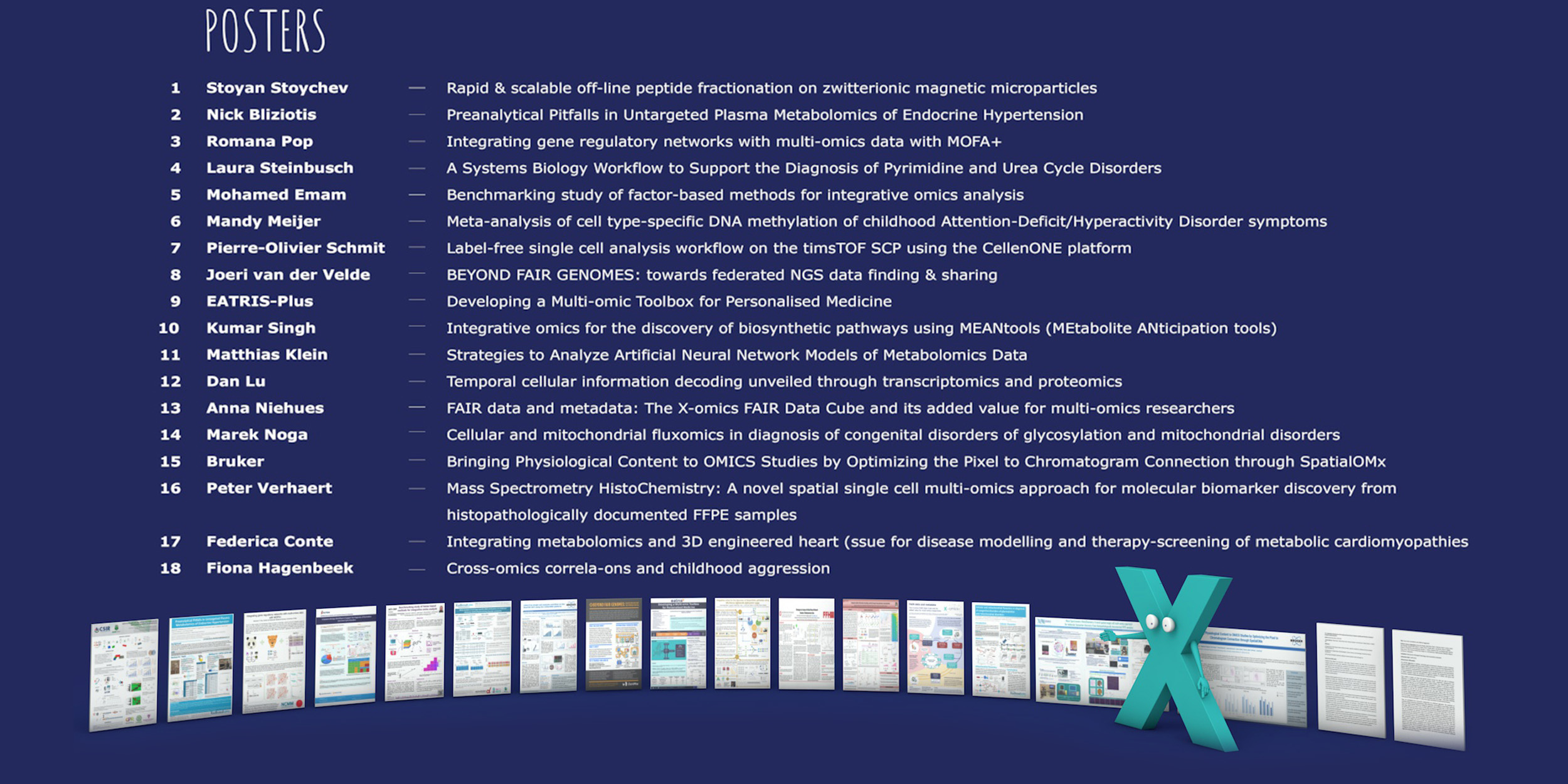Recap X-omics festival 2022
The fourth edition of our X-omics festival “the future of multi-omics research is now!” has taken place on Monday April 11th 2022 as a HYBRID event.
The event included:
- A keynote lecture
- Lectures from X-omics investigators on multi-omics approaches
- Talks about cellular, individual and population omics
- User pitches about applications of new omics technologies
- Interactive sessions
- Meet & greet with speakers and experts
- Scientific posters
- Networking opportunities during breaks, dinner and party
- Entertainment by our host, Bennie Solo!
Program morning
-
08.00-09.00 Registration -
-
Opening keynote:
Timothy Ebbels (Imperial College Londen, UK):
"Metabolomics-driven data integration: challenges and solutions."
Pitch -
10.00-10.30 Coffee break (with poster sessions)
-
Cellular omics:
Chairs: Tim Veth (Utrecht University) and Donna Debets (Utrecht University) -
Yvonne Vercoulen (UMC Utrecht):
"Multiplex spatial tissue analysis of proteins and RNA expression profiles to visualize cellular interactions in inflammation and cancer."
Presentation10.50-11.10 Harmjan Vos (UMC Utrecht):
"Single Cell Proteomics on Organoids"Ron Heeren (Maastricht University):
“Imaging spatial omics: Single cells in context.”
Pitch Presentation (135mb)
-
12.00-13.15 Lunch (Networking carrousel for online participants) -
13.15-13.30 Energizer
Program afternoon
-
Individual omics:
Chairs: Purva Kulkarni (Radboudumc) and Charlie Clark (Leiden University) -
Pieter Langerhorst (Radboudumc):
“Personalized blood-based Mass Spectrometry methods introduce a new era in Multiple Myeloma diagnostics.”
Presentation -
Jeroen de Ridder (UMC Utrecht):
"Sensitive monitoring of cell free DNA in liquid biopsies using Nanopore sequencing."
Pitch Presentation (30mb)
-
15.00-15.30 Coffee break (with poster sessions)
-
15.30-16.15 Meet & greet with speakers and experts
-
Population omics:
Chairs: Yanick Hagemeijer (University of Groningen) and XiaoFeng Liao (Radboudumc) -
Jenny van Dongen (VU Amsterdam):
“Identical twins carry an epigenetic signature of early genome reprogramming.”
Pitch
-
17.00-17.15 Recap and closure -
17.15-18.00 Networking and entertainment during drinks
-
18.00-20.00 Diner
-
20.00-22:00 Party with entertainment
Alain van Gool
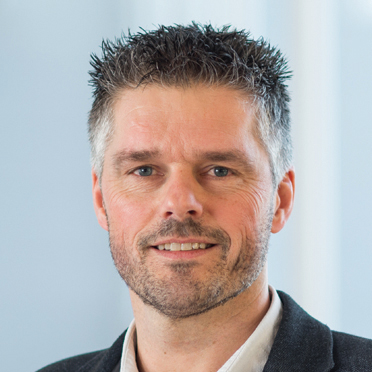 Alain van Gool is professor Personalized Healthcare and heads the Translational Metabolic Laboratory at the Radboud university medical center, with a strong passion in the application of biomarkers in translational medicine and personalized healthcare. After his study (biochemistry, 1991) and PhD (molecular biology, 1996) Alain worked at a mix of academia, pharmaceutical industries, applied research institutes, university medical centers in Europe, Asia and USA. He has been leading technology-based biomarker laboratories, cross-functional expert teams, therapeutic project teams and public-private consortia, many of which were focused on the discovery, development and implementation of translational biomarkers in a variety of therapeutic areas. His technical expertise resides most strongly in molecular profiling (various Omics approaches), analytical biomarker development and applications in translational scientific research.
Alain van Gool is professor Personalized Healthcare and heads the Translational Metabolic Laboratory at the Radboud university medical center, with a strong passion in the application of biomarkers in translational medicine and personalized healthcare. After his study (biochemistry, 1991) and PhD (molecular biology, 1996) Alain worked at a mix of academia, pharmaceutical industries, applied research institutes, university medical centers in Europe, Asia and USA. He has been leading technology-based biomarker laboratories, cross-functional expert teams, therapeutic project teams and public-private consortia, many of which were focused on the discovery, development and implementation of translational biomarkers in a variety of therapeutic areas. His technical expertise resides most strongly in molecular profiling (various Omics approaches), analytical biomarker development and applications in translational scientific research.
Alain is a strong believer of open innovation networks and thrives to work with specialists to translate basic research to applied science. With that background, he currently also acts as Strategic Advisor to the Executive Board of Radboudumc, co-coordinates the Radboudumc Technology Centers, is Scientific Lead Technologies of DTL (the Dutch Techcenter for Life Sciences), is Chair Biomarker Platform of EATRIS (the European infrastructure for Translational Medicine), is co-initiator of Health-RI (the Netherlands Health Research Infrastructure for Personalized Medicine and Health), and project leader and PI of the Netherlands X-omics Initiative, thus contributing to the organisation and coordination of local, national and European technology infrastructures. Complementing his daily work, he enjoys contributing to scientific advisory boards of start-up enterpreneurs, multinational companies, translational organisations, funding agencies and conference organisers.
Timothy Ebbels
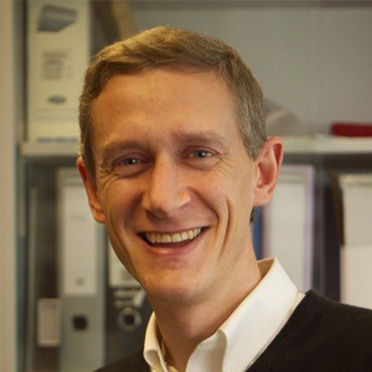 Prof Tim Ebbels obtained his PhD in astrophysics from the University of Cambridge and in 1998 moved into bioinformatics via postdoctoral work at Imperial College London. His group focuses on the application of bioinformatic, machine learning and chemometric techniques to post-genomic data, with a particular emphasis on computational metabolomics. He has worked on projects ranging from environmental monitoring, through molecular epidemiology, to toxicogenomics and high-performance computing infrastructures. Much work focuses on modelling of the analytical technologies used to obtain metabolomic data, but his group is also addressing problems of data integration, visualisation, network analysis, time series and metabolite annotation. He is particularly known for the ‘BATMAN’ software for analysing complex metabolic NMR spectra. Tim is an active member of the metabolomics community, having served as a Director of the international Metabolomics Society from 2012-2018 (Secretary from 2014-16). He has co-organised several international conferences (international scientific committee Metabolomics 2014-17) and is a co-founder of the London Metabolomics Network. He is a member of the OECD Metabolomics Reporting Framework, co-chaired the ECETOC Metabolomics Standards Initiative in Toxicology (MERIT) and is an editorial board member for BMC Bioinformatics and the Journal of Chemometrics. He has a strong commitment to postgraduate education, serving as Director of the MRes in Biomedical Research at Imperial College (>750 students trained), leading its Data Science stream and leading the Data Analysis short course at the Imperial’s International Phenome Training Centre. He is a Fellow of the Royal Society of Chemistry and Lifetime Honorary Fellow of the Metabolomics Society.
Prof Tim Ebbels obtained his PhD in astrophysics from the University of Cambridge and in 1998 moved into bioinformatics via postdoctoral work at Imperial College London. His group focuses on the application of bioinformatic, machine learning and chemometric techniques to post-genomic data, with a particular emphasis on computational metabolomics. He has worked on projects ranging from environmental monitoring, through molecular epidemiology, to toxicogenomics and high-performance computing infrastructures. Much work focuses on modelling of the analytical technologies used to obtain metabolomic data, but his group is also addressing problems of data integration, visualisation, network analysis, time series and metabolite annotation. He is particularly known for the ‘BATMAN’ software for analysing complex metabolic NMR spectra. Tim is an active member of the metabolomics community, having served as a Director of the international Metabolomics Society from 2012-2018 (Secretary from 2014-16). He has co-organised several international conferences (international scientific committee Metabolomics 2014-17) and is a co-founder of the London Metabolomics Network. He is a member of the OECD Metabolomics Reporting Framework, co-chaired the ECETOC Metabolomics Standards Initiative in Toxicology (MERIT) and is an editorial board member for BMC Bioinformatics and the Journal of Chemometrics. He has a strong commitment to postgraduate education, serving as Director of the MRes in Biomedical Research at Imperial College (>750 students trained), leading its Data Science stream and leading the Data Analysis short course at the Imperial’s International Phenome Training Centre. He is a Fellow of the Royal Society of Chemistry and Lifetime Honorary Fellow of the Metabolomics Society.
Yvonne Vercoulen
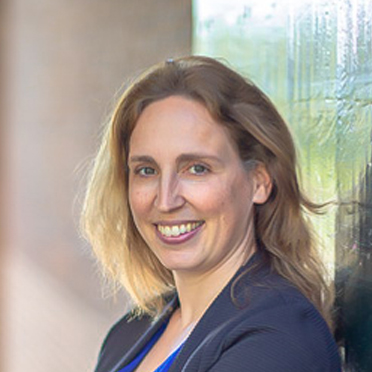 Yvonne Vercoulen is a principal investigator and assistant professor at the Center for Molecular Medicine of the UMC Utrecht, and a member of the Utrecht Young Academy. Throughout her career she has developed a fascination for immune regulation and aims to understand how errors result in tissue inflammation and cancer. She trained as a PhD student in T cell immune regulation at Utrecht University, and as a Marie-Curie international postdoctoral fellow in T cell receptor signal transduction at UC San Francisco.
Dr. Vercoulen’s team at the UMC Utrecht works at the interface of immunology and cancer to identify cellular and molecular underpinnings of disease. The Vercoulen lab asks fundamental questions to, for example, understand how inflammation contributes to cancer development. The team has developed multiplex spatial analyses technology using imaging mass cytometry and applies both protein and spatial RNA multiplex analyses to investigate the interplay between different cell types in the tissue. Studying tissue and intercellular communication in the tissue microenvironment is essential to understand the mechanisms of disease. Dr. Vercoulen’s team collaborates closely with clinicians and researchers from multiple disciplines and strives to drive the field of spatial tissue biology forward and bring this to a level of clinical application.
Yvonne Vercoulen is a principal investigator and assistant professor at the Center for Molecular Medicine of the UMC Utrecht, and a member of the Utrecht Young Academy. Throughout her career she has developed a fascination for immune regulation and aims to understand how errors result in tissue inflammation and cancer. She trained as a PhD student in T cell immune regulation at Utrecht University, and as a Marie-Curie international postdoctoral fellow in T cell receptor signal transduction at UC San Francisco.
Dr. Vercoulen’s team at the UMC Utrecht works at the interface of immunology and cancer to identify cellular and molecular underpinnings of disease. The Vercoulen lab asks fundamental questions to, for example, understand how inflammation contributes to cancer development. The team has developed multiplex spatial analyses technology using imaging mass cytometry and applies both protein and spatial RNA multiplex analyses to investigate the interplay between different cell types in the tissue. Studying tissue and intercellular communication in the tissue microenvironment is essential to understand the mechanisms of disease. Dr. Vercoulen’s team collaborates closely with clinicians and researchers from multiple disciplines and strives to drive the field of spatial tissue biology forward and bring this to a level of clinical application.
Harmjan Vos
During his PhD on Ribosome biogenesis in Yeast at the dept. Biochemistry of the Vrije Universiteit in Amsterdam, several papers appeared using the power of mass spectrometry to identify protein complexes. This made him decide; if you can’t beat them, join them. Therefore, he applied for a postdoc position in the group of Jeroen Krijgsveld in the lab of Albert Heck and studied the Sumo-Proteome of Drosophila Melanogaster. Hereafter he moved on campus to the lab of Boudewijn Burgering at the University Medical Center Utrecht, where he is now heading the proteomics facility of the Center for Molecular Medicine.
Ahmed Ali
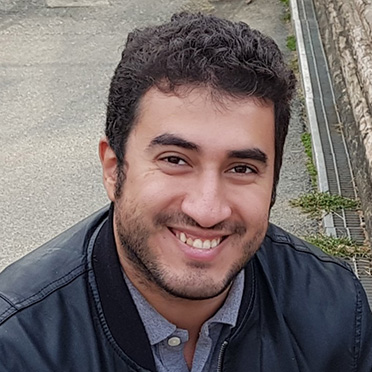 Ahmed Ali is an assistant professor and the leader of single cell research within Thomas’s Hankemeier’s group in LACDR, Leiden University. He leverages his multidisciplinary background in analytical chemistry, pharmacy, biomedical science, and data science to develop novel single cell metabolomics techniques, investigate cellular heterogeneity, as well as cell migration and metastasis in patient-derived 3D models and organ on chip.
Ahmed Ali is an assistant professor and the leader of single cell research within Thomas’s Hankemeier’s group in LACDR, Leiden University. He leverages his multidisciplinary background in analytical chemistry, pharmacy, biomedical science, and data science to develop novel single cell metabolomics techniques, investigate cellular heterogeneity, as well as cell migration and metastasis in patient-derived 3D models and organ on chip.
Ron Heeren
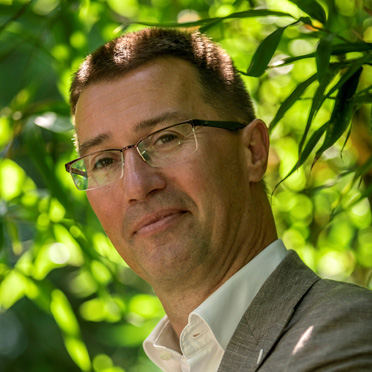 Prof. Dr. Ron M.A. Heeren obtained a PhD degree in technical physics in 1992 at the University of Amsterdam on plasma-surface interactions. He was the research group leader at FOM-AMOLF for macromolecular ion physics and biomolecular imaging mass spectrometry in the period 1995-2015. In 2001 he was appointed professor at the chemistry faculty of Utrecht University lecturing on the physical aspects of biomolecular mass spectrometry and later became part of the Netherlands Proteomics Center. In 2014 he was appointed as distinguished professor and Limburg Chair at Maastricht University. He is scientific director of M4I, the Maastricht MultiModal Molecular Imaging institute on the Brightlands Maastricht Health campus. There, he heads the division of imaging MS. Currently he serves as the chair of the NWO research community “advanced methods, instrumentation and data analysis” for the life sciences. He was awarded the prestigious 2019 Physics Valorization prize by the Dutch organization for scientific Research, NWO and the 2020 Thomson medal of the international mass spectrometry foundation. In 2021 he was elected as a member of the Royal Dutch Academy of Sciences, KNAW. His academic research interests are mass spectrometry based personalized medicine, translational molecular imaging and “omics” research, high-throughput bioinformatics and the development and validation of new mass spectrometry based molecular imaging techniques for the life sciences. He is actively involved in the development of molecular imaging education, instrumentation engineering and the improvement of the Dutch national large scale research infrastructure.
Prof. Dr. Ron M.A. Heeren obtained a PhD degree in technical physics in 1992 at the University of Amsterdam on plasma-surface interactions. He was the research group leader at FOM-AMOLF for macromolecular ion physics and biomolecular imaging mass spectrometry in the period 1995-2015. In 2001 he was appointed professor at the chemistry faculty of Utrecht University lecturing on the physical aspects of biomolecular mass spectrometry and later became part of the Netherlands Proteomics Center. In 2014 he was appointed as distinguished professor and Limburg Chair at Maastricht University. He is scientific director of M4I, the Maastricht MultiModal Molecular Imaging institute on the Brightlands Maastricht Health campus. There, he heads the division of imaging MS. Currently he serves as the chair of the NWO research community “advanced methods, instrumentation and data analysis” for the life sciences. He was awarded the prestigious 2019 Physics Valorization prize by the Dutch organization for scientific Research, NWO and the 2020 Thomson medal of the international mass spectrometry foundation. In 2021 he was elected as a member of the Royal Dutch Academy of Sciences, KNAW. His academic research interests are mass spectrometry based personalized medicine, translational molecular imaging and “omics” research, high-throughput bioinformatics and the development and validation of new mass spectrometry based molecular imaging techniques for the life sciences. He is actively involved in the development of molecular imaging education, instrumentation engineering and the improvement of the Dutch national large scale research infrastructure.
Pieter Langerhorst
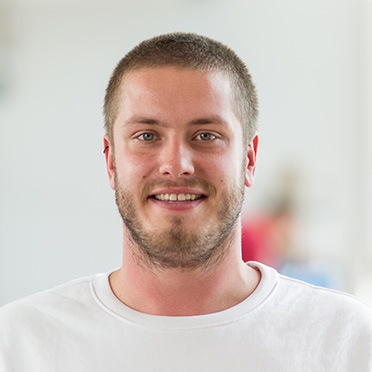 Pieter Langerhorst is a PhD candidate at the Radboud Institute for Molecular Life Sciences, department of Laboratory medicine, Radboud University Medical Center. He obtained a bachelor’s degree in analytical chemistry at the Leiden university of applied sciences and a master’s degree in cellular and molecular life sciences at the Utrecht University. Currently Pieter is performing his PhD where he focusses on developing novel (targeted) mass spectrometry methods for personalized diagnostics in hematological malignancies. Together with collaboration partners at the ErasmusMC he created ultra-sensitive personalized LC-MS/MS blood tests to monitor minimal residual disease. He recently integrated RNA-seq and glycoproteomics to study immunoglobulin glycosylation in great detail, this so called glycoproteogenomics provides opportunities to improve personalized diagnostics.
Pieter Langerhorst is a PhD candidate at the Radboud Institute for Molecular Life Sciences, department of Laboratory medicine, Radboud University Medical Center. He obtained a bachelor’s degree in analytical chemistry at the Leiden university of applied sciences and a master’s degree in cellular and molecular life sciences at the Utrecht University. Currently Pieter is performing his PhD where he focusses on developing novel (targeted) mass spectrometry methods for personalized diagnostics in hematological malignancies. Together with collaboration partners at the ErasmusMC he created ultra-sensitive personalized LC-MS/MS blood tests to monitor minimal residual disease. He recently integrated RNA-seq and glycoproteomics to study immunoglobulin glycosylation in great detail, this so called glycoproteogenomics provides opportunities to improve personalized diagnostics.
Francesco Marabita
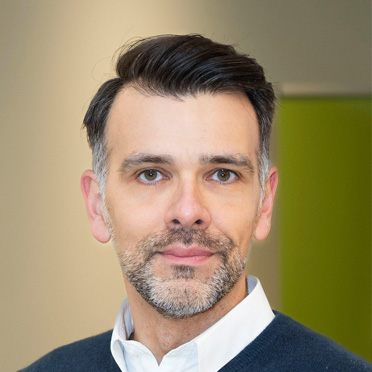 Francesco Marabita is a Lead Translational and Personalised Medicine Scientist at Chiesi Pharma AB, Stockholm. He received a PhD in Molecular and Translational Medicine in 2011 from the University of Milano Bicocca, Italy. He then continued is career in academia as a postdoc in bioinformatics, assistant professor and senior bioinformatician at SciLifelab, Karolinksa Institutet, Stockholm. He has been involved in developing and testing analysis plans but most importantly in evaluating biological questions through comprehensive data analysis. His research is focused on precision medicine, precision health and multiomics data integration.
Francesco Marabita is a Lead Translational and Personalised Medicine Scientist at Chiesi Pharma AB, Stockholm. He received a PhD in Molecular and Translational Medicine in 2011 from the University of Milano Bicocca, Italy. He then continued is career in academia as a postdoc in bioinformatics, assistant professor and senior bioinformatician at SciLifelab, Karolinksa Institutet, Stockholm. He has been involved in developing and testing analysis plans but most importantly in evaluating biological questions through comprehensive data analysis. His research is focused on precision medicine, precision health and multiomics data integration.
Kornelia Neveling
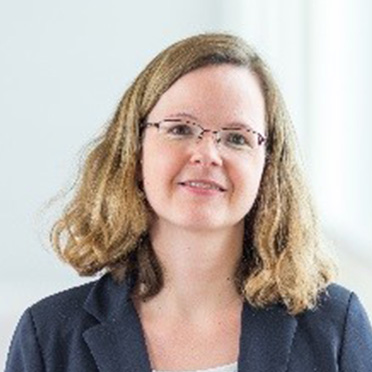 Kornelia Neveling, PhD, is a scientific researcher at the Human Genetics department at the Radboud UMC in Nijmegen, the Netherlands. She earned her degree in Biology at the Heinrich-Heine-University Düsseldorf, Germany. Subsequently, she performed her PhD in Human Genetics at the Julius-Maximilians-University Würzburg, Germany, investigating the molecular causes and consequences of genetic instability syndromes, with a special interest in Fanconi anemia. In 2009, she started as a research postdoc at the Dept of Human Genetics of the RadboudUMC Nijmegen, where she learned all about NGS. In 2011 she switched from research to diagnostics. Kornelia’s main interest is in the implementation of new technologies into diagnostic routine, with long read sequencing and optimal genome mapping being her current projects.
Kornelia Neveling, PhD, is a scientific researcher at the Human Genetics department at the Radboud UMC in Nijmegen, the Netherlands. She earned her degree in Biology at the Heinrich-Heine-University Düsseldorf, Germany. Subsequently, she performed her PhD in Human Genetics at the Julius-Maximilians-University Würzburg, Germany, investigating the molecular causes and consequences of genetic instability syndromes, with a special interest in Fanconi anemia. In 2009, she started as a research postdoc at the Dept of Human Genetics of the RadboudUMC Nijmegen, where she learned all about NGS. In 2011 she switched from research to diagnostics. Kornelia’s main interest is in the implementation of new technologies into diagnostic routine, with long read sequencing and optimal genome mapping being her current projects.
Jeroen de Ridder
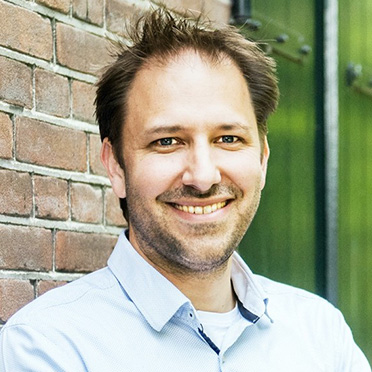 Jeroen de Ridder is a principal investigator and associate professor at the Center for Molecular Medicine of the University Medical Center Utrecht, where he leads a research group of around 15 Postdocs, PhD students and other staff. In addition, he is a junior PI at the Oncode institute. As a result of his training at both the Netherlands Cancer Institute and the Delft University of Technology, Jeroen is a bioinformatics scientist with a solid background in computational data science and a strong desire to improve cancer genomics. His research focuses on creating cutting-edge machine-learning-inspired methods to make sense of cancer omics data. To this end, the de Ridder lab has recently proposed a machine learning method to predict treatment benefit to cancer drugs. Moreover, Jeroen's lab is designing novel genomics-based cancer diagnostic methods leveraging whole genome sequencing data and nanopore sequencing data of cell free DNA.
Jeroen is also the co-founder of Cyclomics, a company that aims at improving cancer diagnosis by detecting tumor circulating DNA in the blood of patients.
Jeroen de Ridder is a principal investigator and associate professor at the Center for Molecular Medicine of the University Medical Center Utrecht, where he leads a research group of around 15 Postdocs, PhD students and other staff. In addition, he is a junior PI at the Oncode institute. As a result of his training at both the Netherlands Cancer Institute and the Delft University of Technology, Jeroen is a bioinformatics scientist with a solid background in computational data science and a strong desire to improve cancer genomics. His research focuses on creating cutting-edge machine-learning-inspired methods to make sense of cancer omics data. To this end, the de Ridder lab has recently proposed a machine learning method to predict treatment benefit to cancer drugs. Moreover, Jeroen's lab is designing novel genomics-based cancer diagnostic methods leveraging whole genome sequencing data and nanopore sequencing data of cell free DNA.
Jeroen is also the co-founder of Cyclomics, a company that aims at improving cancer diagnosis by detecting tumor circulating DNA in the blood of patients.
Jenny van Dongen
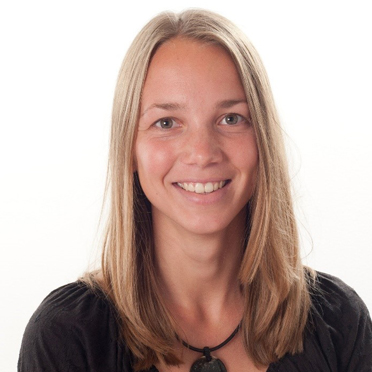 Jenny van Dongen is an assistant professor at the Netherlands Twin Register,
department of Biological Psychology, VU Amsterdam. She obtained a
bachelor’s degree in biology and a master’s degree in neuroscience at the
Vrije Universiteit Amsterdam and did her PhD on twin-family analyses of
metabolic syndrome traits and epigenetic profiles at the Vrije Universiteit
Amsterdam in close collaboration with the Leiden University Medical Center.
Dr. van Dongen is renowned for her work on epigenetic analyses of twins. She
created a catalogue of the heritability of DNA methylation levels across the
genome. Together with an international team of twin researchers, she recently
discovered that identical (monozygotic) twins carry a stable DNA methylation
signature of the twinning event in adult somatic tissues, which represented a
breakthrough for our understanding of the biology of identical twinning.
Jenny van Dongen is an assistant professor at the Netherlands Twin Register,
department of Biological Psychology, VU Amsterdam. She obtained a
bachelor’s degree in biology and a master’s degree in neuroscience at the
Vrije Universiteit Amsterdam and did her PhD on twin-family analyses of
metabolic syndrome traits and epigenetic profiles at the Vrije Universiteit
Amsterdam in close collaboration with the Leiden University Medical Center.
Dr. van Dongen is renowned for her work on epigenetic analyses of twins. She
created a catalogue of the heritability of DNA methylation levels across the
genome. Together with an international team of twin researchers, she recently
discovered that identical (monozygotic) twins carry a stable DNA methylation
signature of the twinning event in adult somatic tissues, which represented a
breakthrough for our understanding of the biology of identical twinning.
Thomas Hankemeier
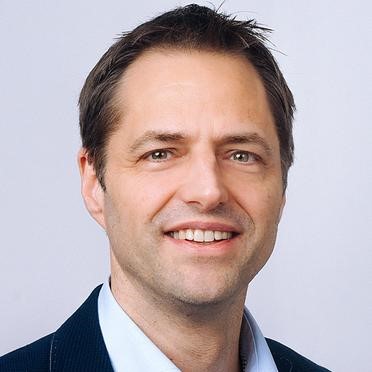 Thomas Hankemeier is professor of Analytical Biosciences and head of the Division of Analytical BioSciences at the Leiden Academic Centre of Drug Research at Leiden University and Medical Delta Professor of Translational Epidemiology at the Erasmus MC. Pioneering innovation in metabolomics technology as well as analytics, he has developed novel technology to miniaturize the setup and advance metabolomics methods towards high throughput using microfluidics. Thomas is initiator and scientific director of the Netherlands Metabolomics Centre; a €53M public-private research program (2008-2013). He was chairman of the 2010 Metabolomics conference in Amsterdam, member of the Board of Directors of the International Metabolomics Society. He aims to realize personalized medicine and prevention by translating changes in pathways and biochemical networks during diseases to possible treatment options. He has developed a microfluidic 3D cell culture technology, and is cofounder of MIMETAS, the worldwide first organ-on-chip company.
Thomas Hankemeier is professor of Analytical Biosciences and head of the Division of Analytical BioSciences at the Leiden Academic Centre of Drug Research at Leiden University and Medical Delta Professor of Translational Epidemiology at the Erasmus MC. Pioneering innovation in metabolomics technology as well as analytics, he has developed novel technology to miniaturize the setup and advance metabolomics methods towards high throughput using microfluidics. Thomas is initiator and scientific director of the Netherlands Metabolomics Centre; a €53M public-private research program (2008-2013). He was chairman of the 2010 Metabolomics conference in Amsterdam, member of the Board of Directors of the International Metabolomics Society. He aims to realize personalized medicine and prevention by translating changes in pathways and biochemical networks during diseases to possible treatment options. He has developed a microfluidic 3D cell culture technology, and is cofounder of MIMETAS, the worldwide first organ-on-chip company.




